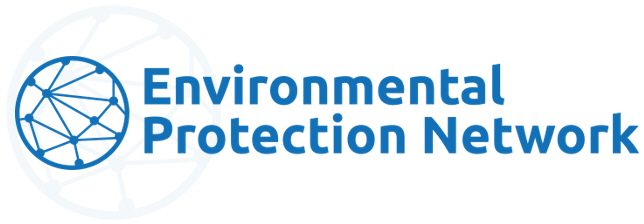As selected EPA grantees work toward signing their cooperative agreements with EPA, there are a number of pre-award milestones to be met, as well as requirements for project implementation. Below are some helpful resources to fulfill those requirements. Please be aware that this is a living breathing page, and your feedback on the current resources and suggestions for additional resources are welcome. Please send an email to kathy.pope@environmentalprotectionnetwork.org if you have recommendations.
***In addition, please note that we have created a pre-award Introduction and Checklist for the conditional awardees and partners of EPA’s Climate Pollution Reduction Grant (CPRG) Program: Implementation Grants, EPA’s Community Change Grants (CCG) Program, and the Greenhouse Gas Reduction Fund’s Solar for All (SFA) Program (Intro/Checklist available soon). To access these Introductions and Checklists, find workshop and learning sessions information, and contact information for 1:1 support, please visit our CPRG web page, our CCG web page, and our SFA web page.
-
EPA Grants Management Training for Applicants and Recipients
EPA’s Office of Grants announced new requirement that, as of March 4, 2024, all new grant applicants and recipients (organizations that have never received an EPA grant, or if they last received an EPA grant before October 1, 2014) must complete two online courses, the “EPA Grants Management Training for Applicants and Recipients” and the “How to Develop a Budget.” These requirements must be completed by new applicants and recipients prior to receiving grant funds.
For further information on both courses, applicability, accessing the courses, and utilizing available tools and resources, email EPA_Grants_Info@epa.gov and please reference: RAIN-2024-G01. -
Pre-Award Certification Requirements
As part of a December 2023 pre-award certification workshop hosted by EPA, the following toolkit and other documents were provided to assist with the completion of the EPA Form 6600-01 and the development of policies and procedures. For questions, please contact OMS-ARM-OGD-PreAward@epa.gov.
Toolkit:
– EPA Questionnaire Form 6600 – Reminder: Nothing should be left blank on the 6600 form unless it is Section IX: Transaction Testing or you are told to skip to the next question. The pre-award certification will be valid for 4 years. The form should be completed with the mindset of this current award under review and possible future award with EPA.
– 6600 Checklist – Please use this sheet to reference the page numbers in your supporting documents and return with your submission.
– 6600 Sample Language
– Questions 4-47 Sample Language – This document is organized in numerical order to correspond to the form. Please use as needed!
– Question 33 & More Sample Language
– FY22 Notes for Grantees
– Best Practice Guide for Procurement
– Records Retention Guidelines
– Pre-Award Workshop Slide DeckAdditional Guidance:
– Follow up information on Federal Funding Accountability and Transparency Act (FFATA) Reporting* (Prime Contractors awarded a Federal contract are required to file a FFATA subaward report by the end of the month following the month in which the prime contractor awards any subcontract greater than $30,000)
*Pages 29 and 30 may be used in your Policies and Procedures. Page 32 has a training video embedded in the link for more information. -
Information Collection Request (ICR)
An Information Collection Request (ICR) is a set of documents that describes reporting, record keeping, survey, or other information collection requirements imposed on the public by a federal agency. The Paperwork Reduction Act stipulates that every federal agency must obtain approval from the Office of Management and Budget (OMB) before collecting the same or similar information from 10 or more members of the public. If EPA decides to gather such information, the appropriate program office must prepare an Information Collection Request (ICR) and submit it to the appropriate Office of Enterprise Information Programs (OEIP) Desk Officer. The ICR provides an overview of the collection, and estimates the cost and time for the public to respond. The public may view an ICR and submit comments any time on Regulations.gov.
– Here you can access a Sample Grantmakers ICR.
-
Quality Assurance Project Plan (QAPP)
Quality Assurance Project Plans (QAPP) document the project planning process and serve as a blueprint for how your project will run. It provides the who, what, when, where, why and how of the project. Quality assurance documentation is required for awards that involve environmental information operations. EPA Project Officers will work with recipients on quality assurance (QA) requirements. Once the award is made, if a Quality Assurance Project Plan (QAPP(s)) is required as specified in the term and condition for the agreement, the recipient needs to develop the document(s) and submit to the project officer for EPA’s approval, usually within 30-90 days of award. The EPA Quality Assurance Manager (or designee) approves the documents. Recipients cannot begin environmental information operations until EPA approves the QAPP.
Below are QAPP resources, templates, and samples:
– EPA Requirements for Quality Assurance Project Plans*
– EPA Guidance for Quality Assurance Project Plans
– EPA Guidance on Systematic Planning Using the Data Quality Objectives Process
– EPA Quality Assurance Project Plan Development Tool
– EPA Quality Assurance Handbook and toolkit for Participatory Science Projects
– South Coast AQMD Sample Quality Assurance Project Plan for Criteria Pollutant Monitoring Program
– South Coast AQMD Sample Quality Assurance Project Plan for AB 617 Community Air Monitoring Program
– San Diego Stat University TCTAC Quality Assurance Project Plan: Please note: This QAPP is only for the use of secondary data and may not be as helpful for projects that are mostly focused on direct data collection. It was developed in accordance with EPA Region 9 Quality Assurance guidelines and processes, which may not be the same in other EPA regions.
– EPN Is a QAPP Necessary
– EPN Thriving Communities QAPP Template.*NOTE: The QAPP Standard requirements will apply to all new and supplemental grant awards issued on or after August 31, 2023. All new and supplemental assistance agreements requiring QAPPs awarded as of that date must be in compliance with the new Standard or must include an updated term and condition that links to the Standard.
-
Quality Management Plan (QMP)
If conducting environmental information operations, the recipient may be required to develop a QMP. The QMP describes an organization’s Quality Program. Requirements for QMPs are found in the most recent version of EPA’s Quality Management Plan (QMP) Standard. A QMP documents the technical activities to be performed and how the program will integrate QA, quality control, QAPPs, training, etc., into all its environmental information operations.
– Quality Management Plans
– Quality Program Assessments
– QA Annual Report and Work Plans
– Training
– Laboratory On-line Resources -
The Build America, Buy America Act
By requiring the use of Made in America content, the Build America, Buy America provisions in the Bipartisan Infrastructure Law are intended to help stimulate private sector investments in domestic manufacturing, bolster critical supply chains, and support the creation of good-paying union jobs so that America’s workers and firms can compete and lead globally for years to come. For questions regarding the Buy America, Build America (BABA) Act, email BABA-OW@epa.gov. For information, you can access the following resources:
– TRC BABA presentation slides
– Office of Management and Budget’s (OMB) Made in America Office final guidance for implementing the Build America, Buy America Act, as well as additional guidance.
– BABAA Fact Sheet
– EPA Office of Water Build America, Buy America Act Implementation Procedures and Supplemental Questions and Answers for Build America, Buy America Act Implementation Procedures for EPA Office of Water Federal Financial Assistance Programs
– Office of Water BABAA Webinar Presentation
– Office of Water BABAA Implementation Procedures Webinar Presentation
– Office of Land and Emergency Management, read their Build America, Buy America Act Frequently Asked Questions
– Department of Agriculture’s BABAA sample language for inclusion into contracts
– BABAA approved waivers and waivers open for comment
– Feldesman LLP’s Implementation of Build America, Buy America Act Requirements for Federal Grantees -
Davis-Bacon and Related Acts
The Davis-Bacon and Related Acts (DBRA) apply to recipients and subrecipients of EPA grant awards when entering into and managing contracts with contractors and subcontractors in excess of $2,000. DBRA contractors and subcontractors must pay laborers employed under the contract no less than the locally prevailing wages and fringe benefits for corresponding work on similar projects in the area. The following resources can provide more information:
– TRC Federal Procurement and DBRA presentation
EPN Federal Procurement, DBA.pptx
– Overview of the Davis-Bacon Act.
– EPA’s Davis-Bacon Grant Term and Condition Webinar, the presentation slides, and useful links.
– Davis-Bacon and Related Acts Requirements for EPA Subrecipients
– Contract Provisions for Davis-Bacon and Related Act
– Davis-Bacon Act and Brownfields Fact Sheet
– Clean Energy States Alliance Davis-Bacon Act Solar for All Explainer -
Procurement
As a recipient of EPA financial assistance agreement (grants and cooperative agreements), you will likely find it necessary to purchase or “procure” professional services, supplies or equipment, in order to complete the work under your EPA awards. EPA developed a Best Practice Guide for Procuring Services, Supplies, and Equipment Under EPA Assistance Agreements to help recipients other than states meet federal requirements contained in the Procurement Standards of the Uniform Grant Guidance (UGG) published at 2 CFR Part 200 when making such purchases.
In addition, the EPA Brownfields program provides more detailed guidance on preparing procurement RFPs that is also applicable to other EPA grant programs.
-
Preparing for a Single Audit
A single audit is required when a nonfederal entity expends $750,000 or more of federal awards (either direct or indirect awards) in their fiscal year. Use the following resources to prepare:
– TRC Audits and Site Visits presentation
– Video on Preparing for your First Single Audit
– Office of Management and Budget’s Consideratons From Single Audit Reports for the EPA’s Administration of Infrastructure Investment and Jobs Act Funds
– Association of International Certified Professional Accountants Preparing for your First Single Audit: An Auditee Perspective -
Laws and Regulations That Apply to 501(C)(3) Public Charities When They Engage in Lobbying and Advocacy
Alliance for Justice provides Earth and Equity: The Advocacy Playbook for Environmental Justice, part of their Advocacy Playbook social justice series. This publication, designed specifically for environmental justice groups, provides a short overview of the laws and regulations that apply to 501(c)(3) public charities when they engage in lobbying and advocacy, including election season advocacy. Earth and Equity should be considered an informational overview of the rules that apply to environmental justice advocacy and is not intended as legal advice.
-
Additional Training Resources, and Webinars
– Learn how to Accurately Completing EPA Form 5700-52A (MBE/WBE Utilization Report Form) and Other Collateral Disadvantaged Business Enterprise (DBE) Program Requirements.
– For EPA assistance agreement recipients, access EPA Subaward Training.
– Sample subaward agreements here and here.
– Watch EPA Grants Webinars on a wide variety of topics that may be relevant to your grant program. -
EPA Grant Basics
– Watch EPA’s webinar: What to Expect When You’re Expecting … a Grant.
– Read an introduction to Regulations, Policies, and Guidance for EPA Grants.
– Read about Uniform Requirements for Managing Grants that apply to all federal executive agencies.
– Learn about EPA Policies and Guidance for Grants.
– Review Grant Terms and Conditions.
– Access EPA Grants Policy Resources.

